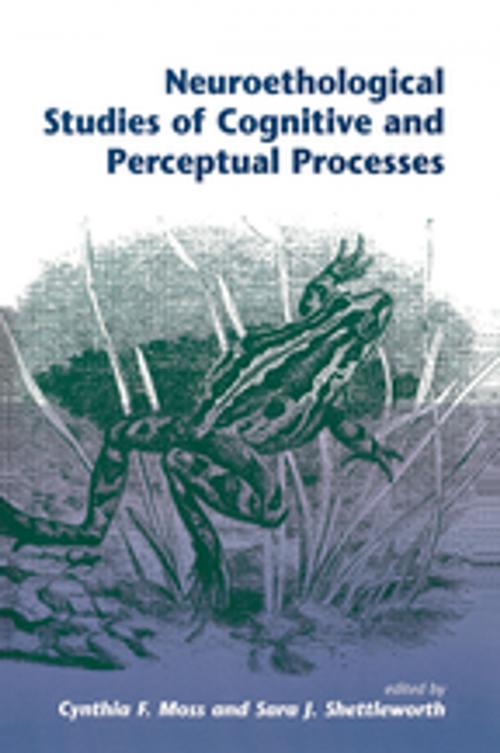Neuroethological Studies Of Cognitive And Perceptual Processes
Nonfiction, Health & Well Being, Psychology| Author: | Cynthia Moss | ISBN: | 9780429978333 |
| Publisher: | Taylor and Francis | Publication: | February 12, 2018 |
| Imprint: | Routledge | Language: | English |
| Author: | Cynthia Moss |
| ISBN: | 9780429978333 |
| Publisher: | Taylor and Francis |
| Publication: | February 12, 2018 |
| Imprint: | Routledge |
| Language: | English |
How do bats catch insects in the dark? How do bees learn which flowers to visit? How do food-storing birds remember where their hoards are? Questions like these are addressed by neuroethology, the branch of behavioral neuroscience concerned with analyzing the neural bases of naturally occurring behaviors. This book brings together thirteen chapters presenting findings on perceptual and cognitive processes in some of the most active areas of neuroethological research, including auditory localization by bats and owls, song perception and learning in birds, pitch processing by frogs and toads, imprinting in birds, spatial memory in birds, learning in bees and in Aplysia, and electroreception in fish. A variety of approaches are represented, such as field studies, psychophysical tests, electrophysiological experiments, lesion studies, comparative neuroanatomy, and studies of development. Each chapter gives an up-to-date overview of a particular author’s research and places it within the broader context of issues about animal perception and cognition. The book as a whole exemplifies how studying species and their particular specializations can inform general issues in psychology, ethology, and neuro-science.
How do bats catch insects in the dark? How do bees learn which flowers to visit? How do food-storing birds remember where their hoards are? Questions like these are addressed by neuroethology, the branch of behavioral neuroscience concerned with analyzing the neural bases of naturally occurring behaviors. This book brings together thirteen chapters presenting findings on perceptual and cognitive processes in some of the most active areas of neuroethological research, including auditory localization by bats and owls, song perception and learning in birds, pitch processing by frogs and toads, imprinting in birds, spatial memory in birds, learning in bees and in Aplysia, and electroreception in fish. A variety of approaches are represented, such as field studies, psychophysical tests, electrophysiological experiments, lesion studies, comparative neuroanatomy, and studies of development. Each chapter gives an up-to-date overview of a particular author’s research and places it within the broader context of issues about animal perception and cognition. The book as a whole exemplifies how studying species and their particular specializations can inform general issues in psychology, ethology, and neuro-science.















